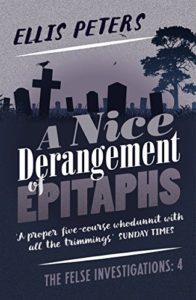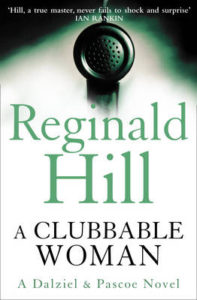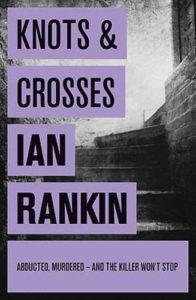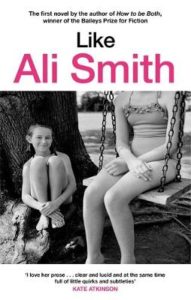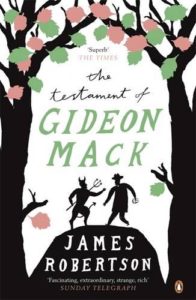Paris Requiem – Chris Lloyd
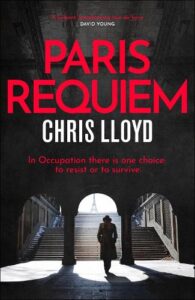 ‘You have a choice which way you go in this war…’
‘You have a choice which way you go in this war…’
Paris, September 1940.
After three months under Nazi Occupation, not much can shock Detective Eddie Giral. That is, until he finds a murder victim who was supposed to be in prison. Eddie knows, because he put him there. The dead man is not the first or the last criminal being let loose onto the streets. But who is pulling the strings, and why?
This question will take Eddie from jazz clubs to opera halls, from old flames to new friends, from the lights of Paris to the darkest countryside – pursued by a most troubling truth: sometimes to do the right thing, you have to join the wrong side…
My thanks to Orion for the opportunity to read an review copy of Paris Requiem
In late 202o I listened to the audiobook of The Unwanted Dead. It introduced Eddie Giral, the police officer who was determined to investigate a crime which nobody else wanted him to investigate. I absolutely loved the story, raved about it A LOT on Twitter and I was delighted to see it win the CWA Gold Crown for best novel of the year.
I have been patiently waiting for Giral’s return (well quite patiently) and when Paris Requiem landed on my doormat it went straight to the front of my reading queue. I know I shouldn’t have favourites but as much as I loved The Unwanted Dead, I think Paris Requiem takes this series to greater heights. Paris Requiem – five stars and if I could give it more I would.
What’s it about then?
Detective Eddie Giral is a member of the Paris police force. It is 1940 and the Germans have occupied the city. The police are still to enforce the law but they must do so working alongside the Germans who have their own control over the city. It’s a fractious dynamic and Eddie is far from happy with the current state of affairs. Although we first met Eddie in the award-winning The Unwanted Dead. You don’t need to read the stories in order to enjoy Paris Requiem but as I adored The Unwanted Dead I would strongly encourage you to seek it out.
We meet Eddie in a closed down Jazz Club. He is a big fan of jazz but not such a big fan of empty clubs which house a dead body. Unfortunately for Eddie the reason he is in a closed down club is because there is a dead body which needs his attention. Bound to a chair and left to be found, the victim has had their mouth sewn shut with twine. A message? But who could it be for? And an even bigger headache for Eddie is that he knows the victim…he arrested him some months earlier and the man should still be in prison – so why is he dead in a club?
Eddie’s boss, Commissionaire Dax, has paired him up with the irritating Boniface. Potentially a decent cop but Eddie feels Boniface spends more time chasing women than he does chasing crooks. Together the pair try to find out why a convicted criminal was walking the streets before he met his untimely and unpleasant death. Worse still it seems he may not be the only criminal no longer serving their sentence – some of the crooks the pair helped capture will hold a grudge too.
Unfortunately for Eddie there are other matters to contend with. His son is trying to escape France, Eddie has not seen him for several months but someone else knows of his flight to freedom and is trying to use this knowledge to get some leverage with Eddie. Will Eddie be able to assist an enemy if it means safe passage for his son? There’s another son to worry about too – not his own but an old friend is looking for Eddie to help find her son. A soldier on the run and hiding from the German army will not have it easy, but when the soldier has black skin it gets even more complicated. Even Eddie’s connections with Major Hochstetter – the German officer who “assists” Eddie and the French police will not use his influential support to track down a missing soldier.
There’s a lot going on in Eddie’s life but Chris Lloyd manages to keep three or four different story threads constantly weaving around the reader. Even when there’s not a crime to occupy his mind Eddie can be found trying to encourage his local butcher to let him have a slightly larger cut of meat or begging his baker to give him a single loaf of bread despite Eddie not having his ration book. Life in occupied Paris still goes on and Lloyd shows the day to day problems all Parisians faced – sourcing fresh meat and bread being one of them.
It’s the wonderful blend of historical fact, crime fiction and sheer reading enjoyment which made me love the time I spent with Paris Requiem. Chris Lloyd breathes life into history and has created a compelling cast of characters. The murders, the escaped criminals, Eddie’s need to appease his boss, appease the Germans and keep himself safe while unknown forces try to kill him – you will be drawn into this story and will not want to stop reading. Especially when you hear about Capeluche – he’s a scary one.
Don’t miss these books. Get to know Eddie Giral. He’s having a rough old time of it but you’ll root for him from first page to last.
Paris Requiem is available now in hardback, digital and audiobook format. You can order a copy here: https://www.waterstones.com/book/paris-requiem/chris-lloyd/9781409190301

